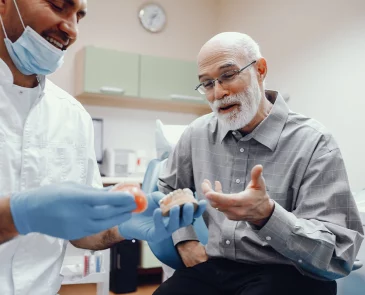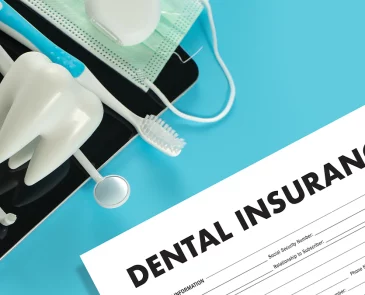What causes tooth decay and how to prevent it?
Tooth decay is when there is a cavity or hole in your tooth. Left untreated, cavities in teeth can worsens and can cause severe dental pain and infection, especially if it gets into the pulp or nerve of the tooth. Dental cavities can affect people at any age, even young children so it is important that you take it seriously and prioritise the dental health of yourself and your children. Here are the seven main causes of tooth decay and what you can do to prevent it.

1. Poor Dental Hygiene
Most people are well aware that poor dental hygiene causes cavities. What many people don’t realise is that it isn’t only extreme cases of poor hygiene that are susceptible to tooth decay. Periods of failing to floss your teeth or not brushing more than once per day can be more than enough to cause issues. Allowing bacteria from food and drink to remain in your mouth over long periods of time significantly increases your risk of developing dental cavities.
2. Difficulty with Teeth Cleaning
It is worth noting that tooth decay is not always caused by neglecting dental hygiene. Sometimes, patients are unable to completely clean their teeth due to the size and shape of certain teeth or having some areas obstructed by braces brackets or dental restorations. Everyone has hard-to-reach areas in their mouth where bacteria can build up. This is why regular professional teeth cleaning at the dentist is necessary as it targets these areas to remove stubborn bacteria.
3. Unhealthy or Sugary Diet
Sugar is a major culprit of tooth decay, but it is not the only dietary red flag to be conscious of. Sugary, acidic and starchy items can cause enamel erosion and attract decay-causing bacteria. This can include:
- Sweets and confectionery
- Soft drinks
- Citrus fruits (acidic)
- Starchy snacks like chips and crackers
So, it is best to avoid or limit these foods and drinks in your diet.
4. Missing Dental Check-ups
Dentists are trained to spot early warning signs of tooth decay and even the smallest cavities that you may not notice yourself. By missing your routine dental check-ups you put yourself at risk of missing these signs before they worsen. And when cavities or tooth decay become severe, they require more invasive procedures like root canal or in the worst cases, tooth loss.
So be sure to keep up with your regular appointments. During a general dental check-up, small cavities can be filled or sealed, problem areas can be cleaned and brought to your attention so you can look after them better.

5. Untreated Health Conditions
Some health conditions or medications used to treat certain conditions can cause tooth decay and reduce the amount of saliva in the mouth. Be sure to listen carefully when discussing the side effects of new medications with your GP and look out for signs of decay or sensitivity in your teeth so that if it is a problem, you can treat it early before it worsens.
6. Genetics
Some individuals may have a genetic predisposition to tooth decay due to factors like the thickness and mineral content of their tooth enamel. These genetic factors can make teeth more prone to demineralization. So it is even more important for these people to maintain good dietary and oral hygiene habits.
7. Age
As we age, our teeth can become more vulnerable to tooth decay. The wear and tear on enamel over the years, along with receding gums that expose the tooth roots, can increase the risk of cavities.
If you want to avoid and prevent tooth decay in your mouth, your best bet is to follow the below guidelines.
- Maintain Proper Oral Hygiene:
Regular brushing and flossing are the foundation of preventing tooth decay. Brush your teeth at least twice a day for two minutes each time, and floss daily to remove food particles and plaque from between your teeth. - Balanced Diet:
Limit your consumption of sugary and acidic foods and beverages. Opt for a balanced diet rich in fruits, vegetables, and dairy products, which provide essential nutrients for strong teeth. - Regular Dental Check-ups:
Schedule regular dental check-ups and cleanings. Dentists can detect early signs of tooth decay and provide professional cleaning and fluoride treatments.





